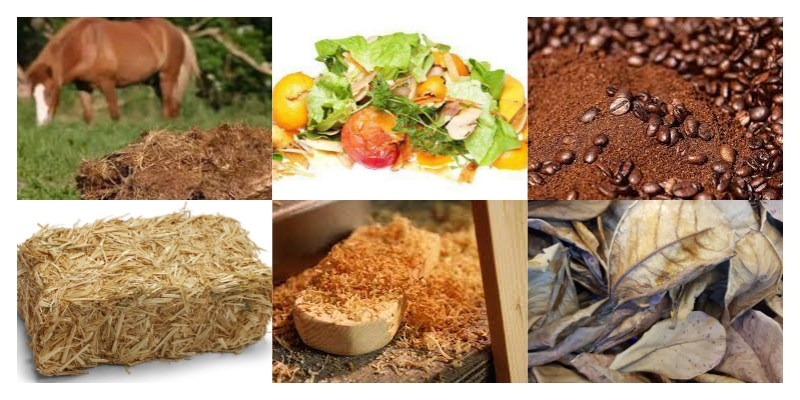The production of carbon-based fertilizer from chicken manure requires a well-organized process and precise machinery selection. Chicken manure or bird dung contains abundant organic matter, but direct application causes odor, pathogens, and inefficient nutrient utilization. A stable manufacturing process transforms raw poultry manure into carbon-based fertilizer granules with better storage, transportation, and application performance. Within this procedure, granulators play a decisive role in turning powdery materials into uniform particles, connecting upstream preparation with downstream packaging. By understanding suitable raw materials, process requirements, and machine features, customers obtain clear guidance for efficient fertilizer production.
What Kinds of Raw Materials Suit Carbon-Based Fertilizer Manufacturing from Chicken Manure?
Raw material selection determines the quality of carbon-based fertilizer. Chicken manure remains the primary source because it contains nitrogen, phosphorus, and potassium in balanced proportions. However, carbon-based fertilizer manufacturing usually requires a mix of poultry dung and other carbon-rich feedstocks. Crop straws, corn stalks, rice husk, sawdust, and charcoal powder provide additional carbon content, improving the stability of finished granules. Some producers also add mushroom residue, bean dregs, or green waste to regulate the carbon-to-nitrogen ratio.
Through compost machines, these raw materials undergo microbial fermentation, where high-temperature decomposition eliminates pathogens and odor. After composting, a crushing machine or carbon fertilizer grinder reduces the bulk into fine powder, ensuring uniformity. Powdery chicken manure mixed with carbonized substances then enters the granulation procedure. At this stage, the material achieves the physical form required for long-term storage, controlled release, and easy transportation. Without proper raw material preparation, the granulation effect remains unstable, and the final fertilizer lacks consistency.

Why Do Granulators Become Essential in Chicken Manure Carbon-Based Fertilizer Production?
Granulators transform loose, fine, powdery chicken manure compost into structured particles. This step ensures that carbon-based fertilizer acquires uniform size, higher density, and lower moisture variation. For customers, granulation enhances both product appearance and market value. In the production line, granulation machines such as disc granulators, flat die granulators, double roller extrusion granulators, drum granulators, and new type organic fertilizer granulators are widely adopted. Each model provides specific benefits according to raw material moisture, investment plan, and capacity requirement.
Disc granulators allow continuous pellet making with flexible adjustment of particle size. Double roller extrusion granulators operate without drying, which suits medium-scale manufacturers who focus on energy savings. Drum granulators provide large-scale continuous production, while flat die granulators handle powdered feedstock with stable shaping. The choice of equipment depends on the powder properties of composted chicken manure and the level of carbonized additives. Granulation not only improves handling but also connects with drying machines, cooling machines, and packing machines in an integrated production line. Without granulation, the carbon-based fertilizer remains in fragile powder form, which increases dust, reduces market acceptance, and complicates packaging.

How Do Other Machines Support the Chicken Manure Carbon-Based Fertilizer Process?
The carbon-based fertilizer production procedure forms a chain where each piece of equipment supports the next step. Carbonization equipment such as biomass furnaces provides biochar powder that mixes with chicken dung. Crushing machines convert bulky compost into fine powder, ensuring better granulation performance. Drying machines reduce moisture content after granulation, preserving the hardness and stability of the fertilizer pellets. Finally, packing machines ensure safe storage and convenient distribution. Each unit in the line interacts with the granulator, since the granulator requires uniform powder input and delivers stable granules for drying and packaging. Customers who plan to invest in a complete production line should evaluate the compatibility of composting, crushing, granulating, drying, and packaging machinery for stable operation.
Conclusion
The transformation of chicken manure into carbon-based fertilizer involves a sequence of preparation, powder processing, and granulation stages. Suitable raw materials such as poultry dung, crop residues, and charcoal powder provide the foundation, while compost machines and crushing machines prepare the powdery feedstock. Granulators act as the core equipment that converts loose material into valuable granules or pellets, ensuring market competitiveness. Drying, cooling, and packing machinery then safeguard quality until delivery.
For customers who pursue efficiency, stable performance, and reliable after-sales service, cooperation with a professional fertilizer equipment manufacturer provides long-term benefits. A professional fertilizer equipment manufacturer—Yushunxin—offers comprehensive solutions that include granulators, compost machines, carbonization furnaces, and other supporting machinery, helping chicken manure carbon-based fertilizer production achieve higher value and stronger competitiveness. You can visit: https://www.charbasedfertilizermachine.com/product/chicken-dung-and-biochar-as-fertilizer/
